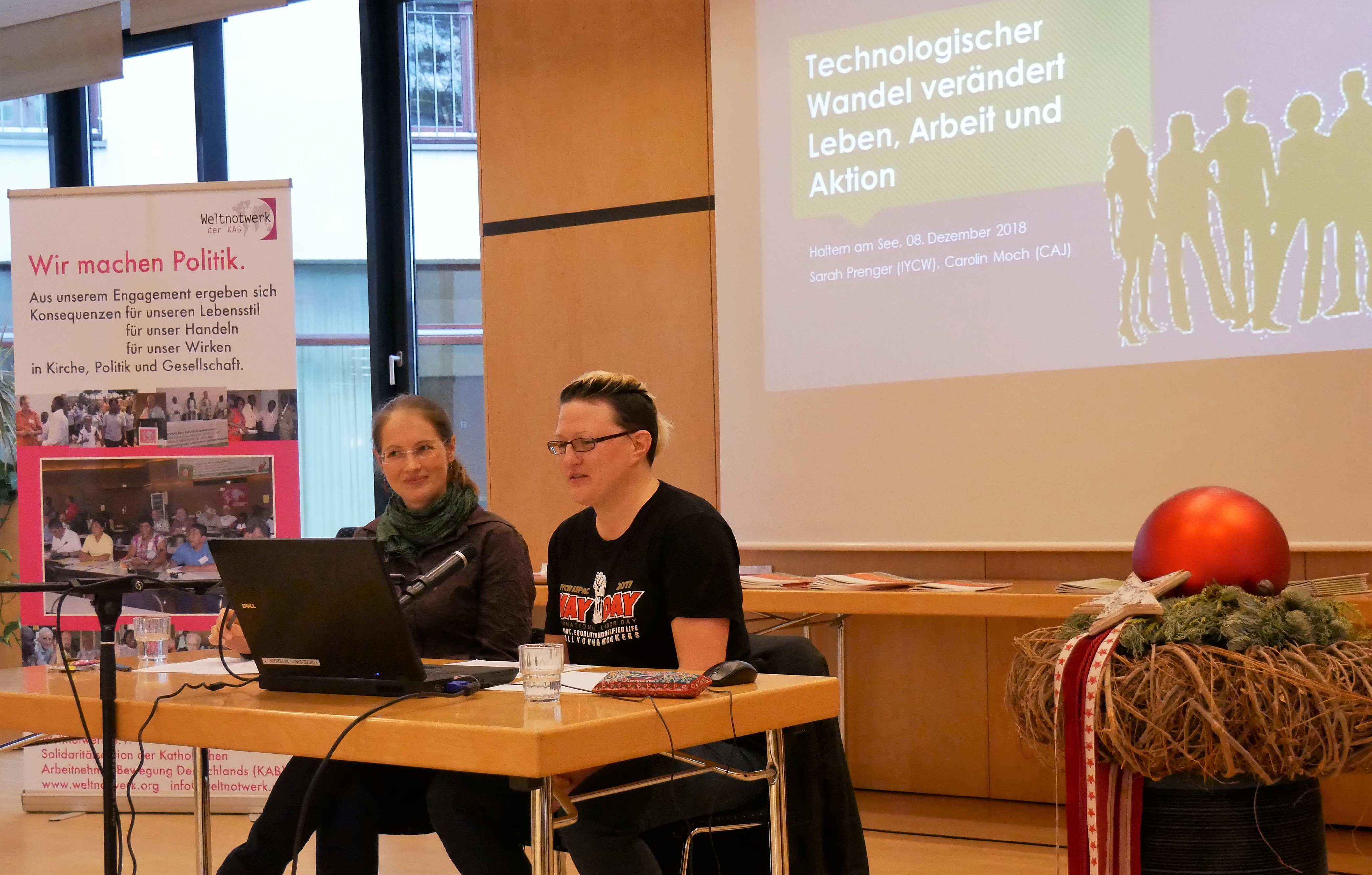
Actively shaping digitization - worldwide!
In cooperation with KAB (National Movement of WMCW-MMTC), the World Emergency Office and KönzgenHaus, a two-day symposium entitled "Global digitization: risks and opportunities of work in the future" was held in Cologne/Haltern, last December 2018. Can global digitization - in the world of work and in daily life - really put an end to extreme poverty, inequality and injustice and also initiate an ecological trend reversal?
Digitalisation eats up resources - an ecological time bomb
"Digitalisation does not reduce our ecological footprint; on the contrary, the introduction of autonomous driving alone would increase the energy demand extraordinarily due to the extreme growth of data streams," emphasised Sven Hilbig, world trade officer at the development agency Brot für die Welt. “The battery of an electric car contains 10,000 times as much lithium as a cell phone battery. The resulting increase in demand for raw materials from Africa and South America is a serious problem for social and ecological sustainability in the global South. Digital trade, as here with raw materials, also threatens to restrict the scope for developing and emerging countries; above all the digital supply chains increase the added value of globally operating corporations and platforms.”
Lack of legislative regulation for new forms of labour
Sarah Prenger, president of the International Young Christian Workers (IYCW), and Carolin Moch, YCW Germany national coordinator, reported on experiences from an international conference in Indonesia on the effects of a rapidly increasing digitalization in a global context. Young people in particular - and this worldwide - are forced to deal with the new forms of gainful employment and to meet challenges in the digital working world. Challenges resulting from the technical development were shown by testimonies of young workers from all over the world, including the lack of social security, a non-existent right to organise, the intensification of work and less free time.
"Digital work must necessarily be work that provides a legally clarified and secured employee status”. A discussion must be set in motion on how working conditions can be shaped and workers’ rights can be guaranteed in digital capitalism.

Digital quantum leap in Africa
Dr Pedro Morazan from the Südwind Institute addressed the digital money transfer of migrant workers to Asia and Africa. Africa is currently experiencing an evolutionary quantum leap - from an agrarian society to the digital age. The smartphone has networked a continent where roads, train stations and airports are missing. Many millions of Africans use their mobile phones like a bank account. They load money, transfer it, withdraw it, settle bills - a completely new mobile phone-based banking system with flows of billions of dollars.
Civil society organisations should also deal with the issue more intensively than before and enter into a dialogue with governments, diaspora organisations and financial transfer service providers in order to achieve initiatives for reducing costs and modernising remittances.
"It is extremely important that governments, chambers of commerce and the digital community set rules on how far global corporations can get involved in the local technology scene and industry to protect the local start-up scene," Morazan commented on the rapid development.
The design of digitization should serve the common good: this was the conclusion of the participants in the final round of reflections. It must not be aimed unilaterally at promoting an economic and growth policy agenda, but must be geared to social, environmental and development policy goals. Sustainable digitization means meaningful, dignified work, social justice and sustainable lifestyles.

